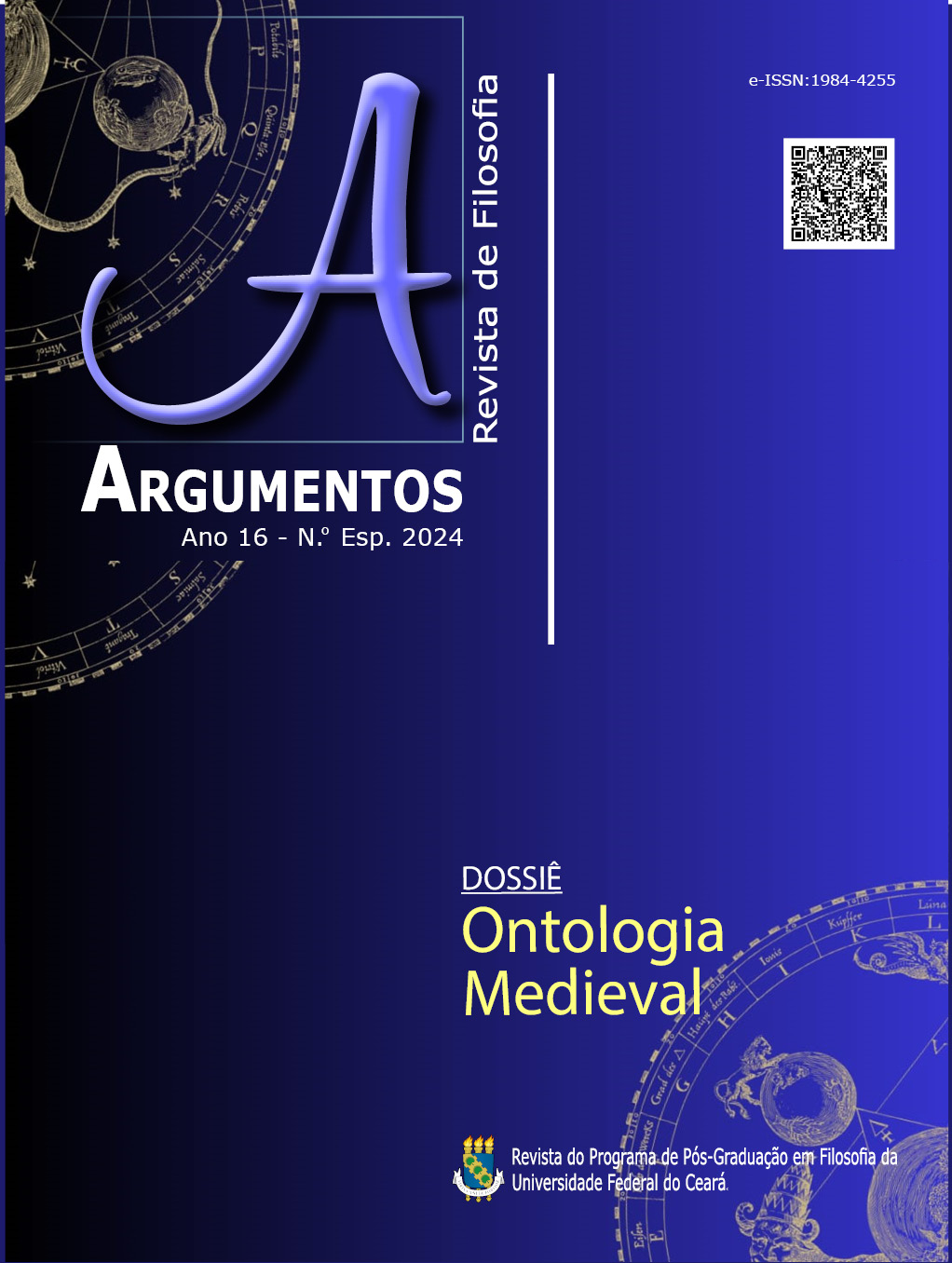The problem of objectification in the Critique of Pure Reason: from transcendental problematics to empirical realism
Keywords:
Empirical Realism. Transcendental Problematic. Critical Action.Abstract
The present work aims to reconstruct the meaning of critical action and its relationship with the domain of the transcendental problematic, as elaborated in the Critique of Pure Reason. To this end, we will make two moves: a) reestablish the necessary link between the adoption of
transcendental idealism and the achievement of empirical realism – which will be done by clarifying the criticism of the equivocal overlap between phenomenon, appearance and illusion; b) inscribe empirical realism as a solution to the problem of objectification in the Critique of Pure Reason due to the broad nature of the transcendental problematic – which will require an analysis of transcendental illusions as structural forms of disagreement between reason and itself. If, at first, we will have as a consequence the clarification that the resolution of the problem of objectification, as given by Kant, excludes from his Critique any possibility of a psychological or skeptical reading, in the second moment we will move the Critique away from the position of a mere precursor of positivism and a referentialist reading, which confers undue powers of objectification to empirical intuition.
References
ALLISON, H. El idealismo trascendental de Kant: una interpretación y defensa. Tradução de Dulce Castro. Barcelona: Editorial Anthropos, 1992.
BENEVIDES, P. A Dissolução das Ilusões Transcendentais na “Crítica da Razão Pura”. 2008. 177 f. Dissertação (Mestrado em Filosofia) – Universidade Federal do Ceará, Fortaleza, 2008.
COHEN, H. Kants Theorie der Erfahrung. Berlin: Bruno Cassirer ed., 1918.
FOUCAULT, M. As Palavras e as Coisas. São Paulo: Martins Fontes, 2007.
KANT, I. Crítica da Razão Pura. Tradução de Valério Rohden e Udo Moonsburger. São Paulo: Abril Cultural, 1980.
LEBRUN, G. Kant e o fim da Metafísica. Tradução de Carlos Alberto de Moura. São Paulo: Martins Fontes, 1993.
LOPARIC, Z. A semântica transcendental de Kant. Campinas: Centro de Lógica, Epistemologia e História da Ciência – UNICAMP, 2002.
MENARD, M. A loucura na Razão Pura: Kant, leitor de Swedenborg. Tradução de Heloísa Rocha. São Paulo: Editora 34, 1996.
PEREIRA, R. Referência e Juízo em Kant. Analytica, Rio de Janeiro, v. 6, n. 2, 2001-2002, p. 79-117.
PRICHARD, H. Kant’s theory of knowledge. Clarendon: Clarendon Press, 1908.
RUBANO, D.; MOROZ, M. A certeza das sensações e a negação da matéria: George Berkeley. In: Para compreender a ciência: uma perspectiva histórica. Rio de Janeiro: Garamond, 2007.
SELLARS, W. Empiricism and the Philosophy of Mind. Cambridge: Harvard University Press, 1997.
STRAWSON, P. The bounds of sense: an essay on Kant´s Critique of Pure Reason. London: Routledge, 1995.
TORRES, J. Cognição intuitiva e pensamentos de re. Analytica, Rio de Janeiro, v. 4, n. 2, 1999, p. 33-63.
TURBAYNE, C. Kant’s refutation of dogmatic idealism. The Philosophical Quarterly, v. 5, n. 20, 1955, p. 225-244.
Downloads
Published
Issue
Section
License
Copyright (c) 2024 Pablo Severiano Benevides

This work is licensed under a Creative Commons Attribution 4.0 International License.
Argumentos magazine is licensed under an International Creative Commons Attribution License.
The Magazine uses CC BY inclusion
1) The authors retain the copyright granted to the magazine or the right to initial publication, with the work regularly licensed under the Creative Commons Attribution, which allows the sharing of the work with acknowledgment of authorship and initial publication in this magazine.
2) The authors are authorized to contract additional applicable contracts, for non-exclusive distribution of the version of the work published in this journal (for example, publication in the institutional repository or as a chapter of the book), recognition of authorship and initial publication in this journal.
3) Authors are authorized and encourage to publish and distribute their work online (for example, in institutional repositories or on their personal pages) at any time before or during the editorial process, as they can generate productive changes, as well as increase the impact and reference of published work.




.jpg)










._._3.png)
1.jpg)
._._._.png)
